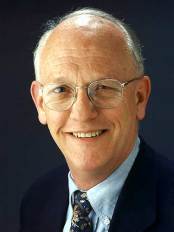
According to projections from the Wisconsin Department of Health Services, the population in Wisconsin ages 65 and older is expected to increase by 72% between 2015 and 2040. The population is aging rapidly in rural areas, especially in the northern half of the state in counties with higher rates of health concerns.
Responding to this demographic shift, the Center for Health Enhancement System Studies’ (CHESS) Active Aging Research Center (AARC) has been using technology to improve the overall quality of life for Wisconsin seniors through a web-based information and communication technology (ICT) platform called Elder Tree.
This technology supports older adults who wish to remain in their homes for as long as possible, a concept known as aging in place. While 90% of adults over the age of 65 say they would prefer to age in place, they often struggle with isolation and loneliness, falling, managing medications, and driving and transportation.
Elder Tree offers older adults a variety of features, including health information, transportation route planning, social interaction and more. The platform is secure and easy to use, even for those that may not be as familiar or comfortable with using technology. However, for those living with multiple chronic conditions (MCCs), symptoms and physical limitations can make using computers difficult.

“As people age, their mobility and stimulus response slows down, said CHESS Founder and Director Dave Gustafson. “Even if someone was the CEO of a technology company, they might have more difficulty using computers as they age due to physical or mental limitations.”
To address these challenges, the group plans to adapt Elder Tree for smart speakers and smart displays. Led by principal investigators Dave Gustafson and Department of Communication Arts Professor Marie-Louise Mares, the CHESS AARC has received two major grants to make the platform more accessible to a larger group of potential users.
“We have to recognize that current technology won’t do the job. There’s an enormous amount of helpful information available, but the capability to access it is limited for many older adults,” Gustafson said. “New smart devices open technology up in a way that was not possible before. Making Elder Tree easier to use means more people will use it.”
The latest grant, a five-year, $3.9 million award from the National Heart, Lung, and Blood Institute (NHLBI), focuses on older adults living with five or more MCCs. An earlier nearly $2 million grant from the U.S. Department of Health and Human Services’ Agency for Healthcare Research and Quality (AHRQ) aims to help older adults dealing with chronic pain in addition to other MCCs.

“The central goals of CHESS have always been to empower patients and improve their quality of life. Being able to speak to a device, and have it talk back and interact with you, rather than read on a screen, may make the content much more accessible,” Mares said. “Using smart displays to help them monitor their health, gain access to resources, and find community, could potentially be more successful than a traditional laptop intervention.”
Researchers saw positive outcomes from the initial iteration of Elder Tree and hope to extend the benefits of the platform to more users and encourage current users to stay active on the application with the help of these grants. Researchers can measure outcomes associated with specific features of the program, such as reduced falls after learning fall prevention techniques, reduced traffic accidents after using the route planning feature, or reduced feelings of loneliness or isolation from engaging with the social aspects of the program.

“We realized there are certain people that can’t take full advantage of the system,” said Dhavan Shah, School of Journalism and Mass Communication Maier-Bascom Professor and CHESS Scientific Director. “Our main goal in this study is improvements in quality of life, especially focusing on giving users a more hopeful outlook and seeing life as more meaningful. We try to do things like reduce depression, increase feelings of independence, or increase people’s ability to manage whatever illnesses or chronic diseases they’re dealing with.”